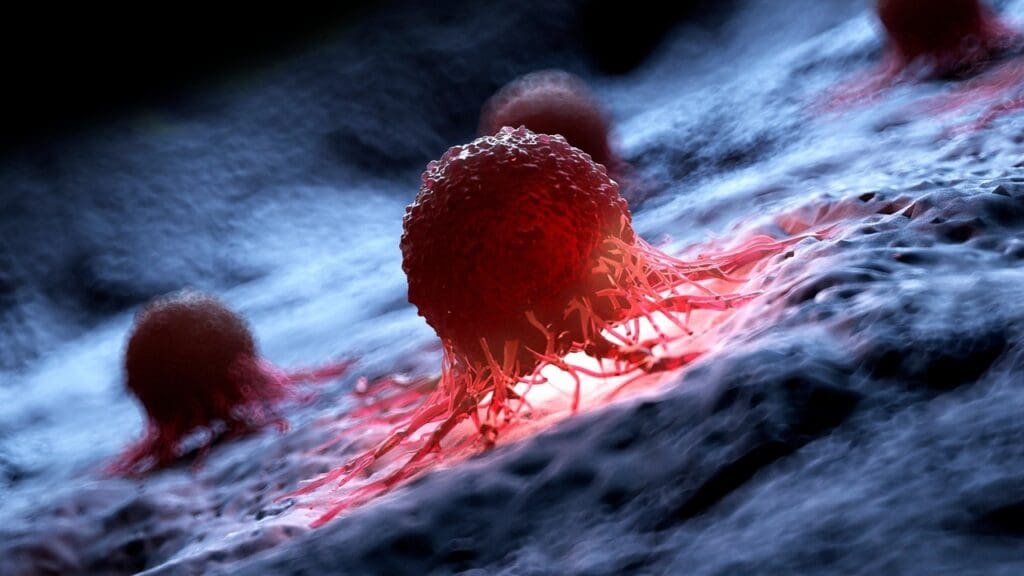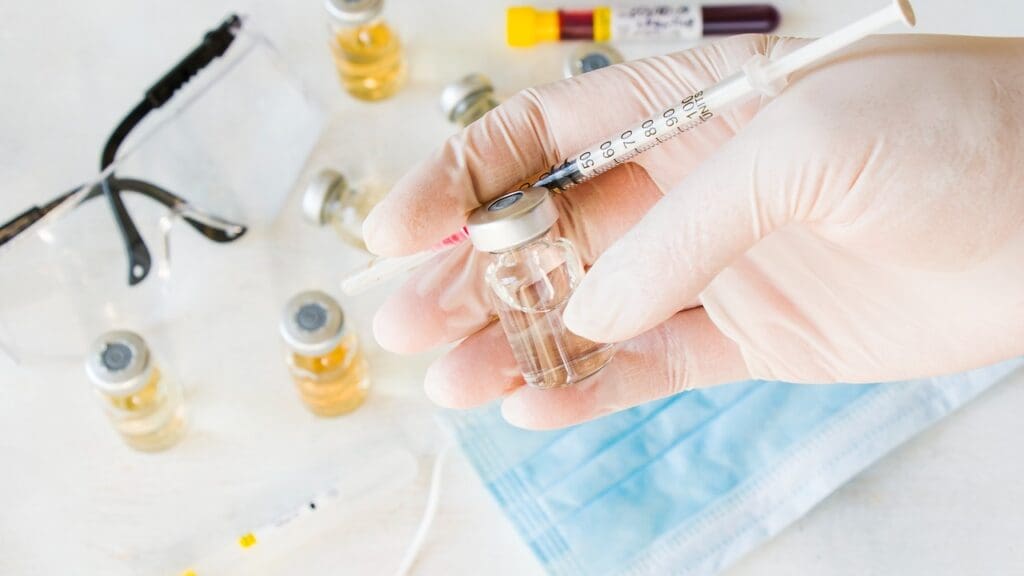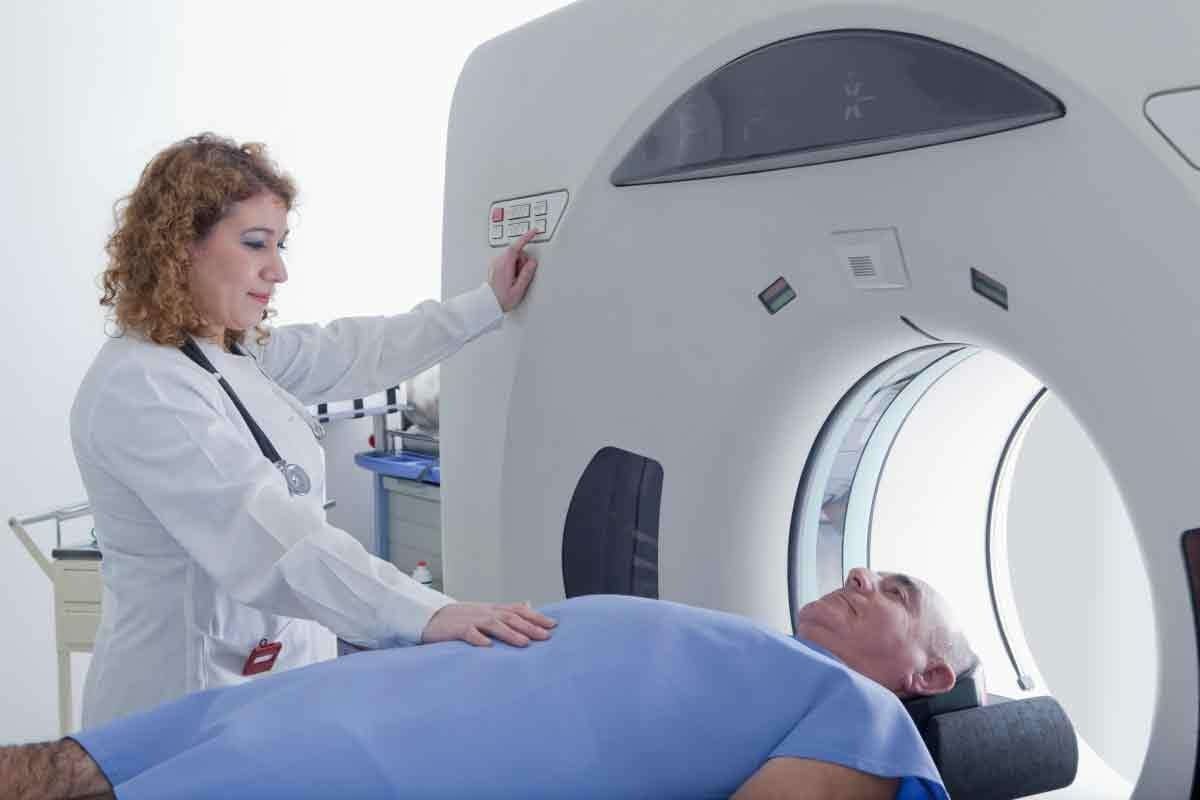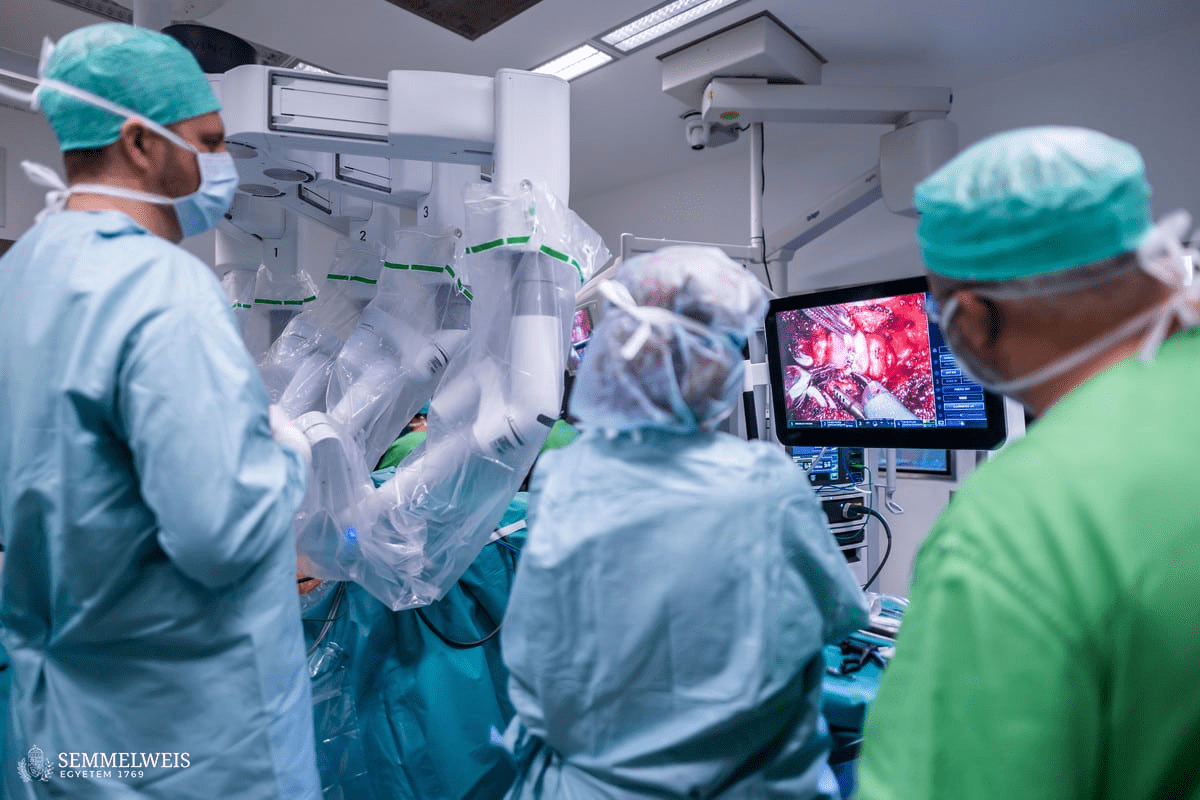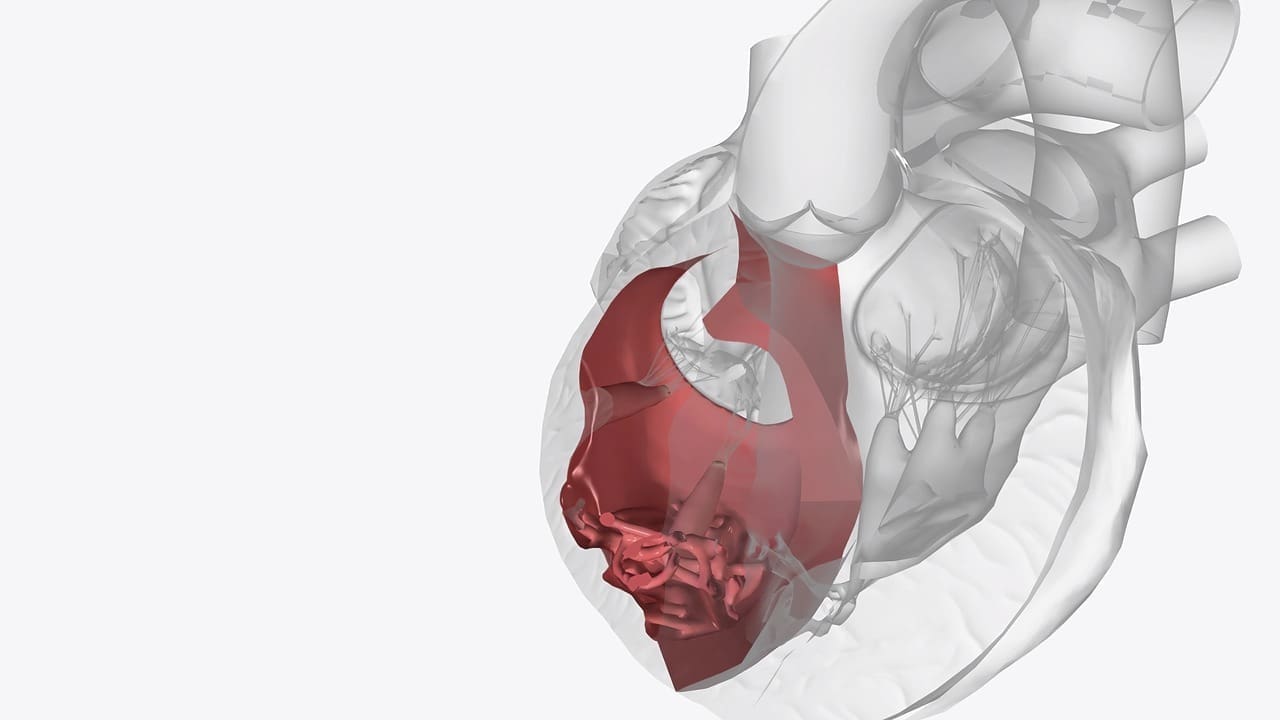Last Updated on November 27, 2025 by Bilal Hasdemir

At Liv Hospital, We are seeing big changes in cancer care with new therapies like vaccine therapy and cancer vaccines. These new methods try to use the body’s immune system to fight cancer.
Cancer injection treatments and vaccines work by boosting the body’s immune response. This helps in targeting and attacking cancer cells. Studies have shown that personalized mRNA cancer vaccines can lower the chance of cancer coming back. This is true for different cancer types, like melanoma.
Key Takeaways
- Immunotherapy is changing cancer treatment.
- Vaccine therapy helps the immune system fight cancer.
- Personalized mRNA cancer vaccines are promising in lowering recurrence.
- These new treatments offer hope for patients.
- Advances in cancer vaccines are changing cancer care.
The Evolution of Cancer Immunotherapy
Cancer immunotherapy has changed how we fight cancer. It uses the immune system to target cancer cells. This makes it a better choice than old treatments.
From Traditional Treatments to Immune-Based Approaches
Old treatments like chemo and radiation harm healthy cells too. Immunotherapy, on the other hand, boosts the immune system to fight cancer. This new way of treating cancer is more precise and less harmful.
Key benefits of immunotherapy include:
- Improved specificity in targeting cancer cells
- Potential for long-term immune memory
- Reduced risk of multi-drug resistance
Why the Immune System Is Critical in Fighting Cancer
The immune system is key in finding and killing cancer cells. Immunotherapy helps it do this better. Experts say it’s a game-changer, with treatments like rituximab showing great results (Grillo-Lopez et al., 2002; Weiner et al., 2010).
Cancer Injection Treatment: Fundamentals and Mechanisms
Cancer injection treatments are a big step forward in fighting cancer. They use the body’s immune system to attack cancer. We’re learning more about how they work to help patients.
How Cancer Injections Stimulate Immune Response
How Cancer Injections Stimulate Immune Response
Cancer injections help the immune system see cancer cells as enemies. This starts an immune response. The body can then fight cancer cells better.
Targeting Cancer-Specific Antigens
The success of cancer injections depends on finding cancer-specific antigens. These are things on cancer cells that the immune system can spot. This lets the immune system attack the cancer.
The Role of T Cells in Destroying Cancer Cells
T cells are key in fighting cancer. They find and kill cancer cells. Cancer injections help T cells work better, boosting the body’s fight against cancer.
Studies show cancer vaccines can spark an immune attack on cancer cells (Livingston et al., 1994; Ragupathi et al., 2000). This shows their promise in fighting cancer.
Types of Therapeutic Cancer Vaccines
Therapeutic cancer vaccines are a new hope in fighting cancer. They work by showing the immune system what to attack in cancer cells. This helps the body fight cancer better.
Whole Cell Vaccines
Whole cell vaccines use cancer cells to get the immune system to react. They can use the patient’s own cells or cells from someone else. This way, the immune system sees many different cancer markers, leading to a stronger fight against cancer.
Peptide-Based Vaccines
Peptide-based vaccines target specific proteins on cancer cells. They aim to create an immune response that matches the patient’s cancer. This could lead to a more focused treatment.
Dendritic Cell Vaccines
Dendritic cell vaccines use the body’s own cells to show the immune system what to attack. Dendritic cells are important for starting and controlling the immune response. They are a key part of cancer vaccine research.
Viral Vector Vaccines
Viral vector vaccines use viruses to carry genetic material into cells. This makes the cells show tumor markers, which the immune system can then attack. This could lead to a strong and focused fight against cancer.
| Vaccine Type | Mechanism of Action | Potential Benefits |
|---|---|---|
| Whole Cell Vaccines | Stimulate immune response using cancer cells | Broad antigen exposure |
| Peptide-Based Vaccines | Target specific proteins on cancer cells | Precise treatment approach |
| Dendritic Cell Vaccines | Utilize dendritic cells to present antigens | Robust immune response |
| Viral Vector Vaccines | Deliver genetic material into cells using viruses | Strong and targeted immune reaction |
Studies have shown promise in using these vaccines to treat cancer (Cheever et al., 2009; Danishefsky et al., 2000). As research goes on, we see more ways to help the body fight cancer.
Personalized mRNA Cancer Vaccines: A Revolutionary Approach
Personalized mRNA cancer vaccines are a new way to fight cancer. They use mRNA technology to create vaccines that match a person’s cancer. This means better treatment and fewer side effects.
How mRNA Technology Works Against Cancer
mRNA technology uses genetic material to tell cells to make a specific protein. In cancer vaccines, this protein is a tumor antigen. It helps the body fight cancer cells. This method lets vaccines quickly adapt to different cancers.
Creating Patient-Specific Cancer Vaccines
To make personalized mRNA vaccines, doctors study a patient’s tumor. They look for specific mutations or antigens. Then, they create a vaccine that targets those exact traits. This makes the treatment very specific to the patient’s cancer. We’re seeing big steps forward in immunotherapy with this method.
Recent Breakthroughs in Melanoma Treatment
Recent studies show great promise for mRNA vaccines in treating melanoma. These vaccines can spark a strong immune response against melanoma cells. This could lower the chance of cancer coming back.
Reducing Recurrence Risk with Personalized Vaccines
Personalized mRNA vaccines target specific cancer antigens. This can lower the risk of cancer coming back. For patients with high-risk melanoma, this is very important. The chance for these vaccines to improve patient outcomes is huge.
As research keeps moving forward, we’ll see mRNA vaccines used more in cancer treatment. The future of cancer treatment is getting more personalized, and mRNA vaccines are leading the way.
FDA-Approved Shots for Cancer Patients
Recent FDA approvals have brought new hope to cancer patients. These vaccines target specific types of cancer. They help the body fight cancer cells better.
Sipuleucel-T (Provenge) for Prostate Cancer
Sipuleucel-T, known as Provenge, is approved for some prostate cancer patients. It uses the patient’s immune cells to attack cancer. This method has shown to increase survival rates in trials.
Talimogene Laherparepvec (T-VEC) for Melanoma
Talimogene Laherparepvec, or T-VEC, is used to treat melanoma. It’s injected into tumors to kill cancer cells. It also boosts the immune system to fight melanoma.
Preventive Vaccines: HPV and Hepatitis B
Preventive vaccines are key in fighting cancer. The HPV vaccine guards against cancer-causing viruses. The Hepatitis B vaccine stops liver cancer by preventing Hepatitis B virus infection.
Access and Insurance Coverage
It’s vital to understand access and insurance for these treatments. We help patients and families with these issues. Most vaccines need multiple doses to work well. We support patients every step of the way.
The Treatment Process: What Patients Can Expect
It’s important for patients to know what to expect during cancer vaccine therapy. We aim to guide and support them every step of the way.
Dosing Schedules and Administration Methods
Cancer vaccines need several doses to work well. The number of doses and when they are given can change. They are usually given as an injection, either in the muscle or under the skin.
Why Multiple Doses Are Required
Having many doses helps the immune system fight cancer cells better. The first dose starts the process. Later doses keep it going strong.
Treatment Duration and Monitoring
How long treatment lasts varies. But most vaccines need several doses over time. It’s key to check how well the treatment is working and adjust as needed.
| Treatment Aspect | Description |
|---|---|
| Dosing Schedule | Varies by vaccine and patient condition |
| Administration Method | Intramuscular or intradermal injection |
| Treatment Duration | Multiple doses over a set period |
Managing Side Effects of Vaccine Therapy
Managing side effects is key in cancer vaccine therapy. It ensures patients get the best care. Understanding and reducing side effects is vital for a good treatment outcome.
Common Reactions at Injection Sites
Patients may see redness, swelling, and pain at the injection site. These are usually mild and go away in a few days. It’s important to watch for symptoms and tell the doctor if they get worse.
Systemic Side Effects and Their Management
Side effects like fatigue, fever, and headache can happen. These can be treated with over-the-counter meds or rest. For more help, check out the American Cancer Society.
Comparing Side Effects to Traditional Cancer Treatments
Cancer vaccines often have fewer side effects than traditional treatments. This is because vaccines target specific cancer cells. So, patients usually face fewer and milder side effects.
Effectiveness of Cancer Injection Vaccines
Cancer injection vaccines are a big step forward in fighting cancer. They offer hope to many patients. But, how well they work can change based on the cancer type and the patient’s health.
Success Rates Across Different Cancer Types
Studies show different results for cancer vaccines in various cancers. For example, some melanoma patients see big improvements. We help patients understand their choices and make informed decisions.
Factors That Influence Treatment Response
Many things can affect how well a vaccine works. These include the cancer’s stage, the patient’s overall health, and genetic markers. Knowing these factors helps improve treatment results.
Combining Vaccines with Other Immunotherapies
Research is looking into using vaccines with other treatments. This mix could make treatments more effective. It uses different ways to fight cancer.
Patient Selection: Who Benefits Most
Choosing the right patient for a vaccine is key. Some people might get more benefits than others. We work with patients to find the best treatment plan for them.
Understanding how well cancer vaccines work helps us support patients better. We focus on the factors that affect their success.
Challenges in Cancer Vaccine Development
Creating effective cancer vaccines is tough. Despite their promise, we face big hurdles. These issues affect how well they work and how many people can use them.
Tumor Heterogeneity and Immune Evasion
Cancer cells in a tumor can vary a lot. This makes it hard to find the right targets for vaccines. Studies have shown that this variation can lead to treatment resistance as noted in recent studies.
Overcoming Immune Tolerance
Another big challenge is getting the immune system to fight cancer. We’re working on ways to break through this barrier. This will help the immune system attack cancer cells better.
Manufacturing and Logistical Hurdles
Creating cancer vaccines is a complex process. It needs a lot of resources. We also face issues like scaling up production and keeping the vaccine stable.
Cost and Accessibility Issues
Cost and access are big problems. Vaccines can be pricey, making them hard for many to get. We want to make these treatments more affordable and accessible.
By tackling these challenges, we hope to make cancer vaccines better and more available. This will help improve patient outcomes.
The Future of Cancer Injection Treatments
Cancer injection treatments are on the verge of a major breakthrough. This is thanks to new technologies and creative methods. As we learn more about cancer and the immune system, we’ll see better and more precise treatments.
Emerging Technologies in Vaccine Development
New methods are being created to make cancer vaccines more effective and safe. For example, mRNA technology is promising. It helps make personalized vaccines that target specific cancer cells.
Expanding Applications to More Cancer Types
Researchers are looking into using these treatments for more types of cancer. Clinical trials are testing these treatments on different cancers. This includes both solid tumors and blood cancers.
Combination Approaches for Enhanced Efficacy
Using cancer injection treatments with other immunotherapies is showing great results. This mix of treatments is being tested in clinical trials. It’s all about making treatments work better together.
Preventive Cancer Vaccines on the Horizon
There’s a lot of research going on about preventive cancer vaccines. These vaccines aim to stop cancer before it starts. It’s a new and exciting area of study.
| Emerging Technology | Description | Potential Impact |
|---|---|---|
| mRNA Technology | Creates personalized cancer vaccines targeting specific tumor antigens | Improved efficacy and safety |
| Combination Therapies | Combines cancer injection treatments with other immunotherapies | Enhanced treatment outcomes |
| Preventive Vaccines | Aims to prevent cancer from developing | Potential for cancer prevention |
Looking ahead, cancer injection treatments will become even more vital in fighting cancer. We’re dedicated to leading in these advancements. This way, our patients can get the newest and most advanced treatments.
Conclusion: Transforming Cancer Care Through Immunotherapy
Cancer injection treatments and vaccines are changing how we fight cancer. They use the body’s immune system to attack tumors. This is a big step forward in cancer care.
Studies show these treatments can make cancer care better. They help patients live longer and fight cancer better. We’re working hard to make sure patients get the best care possible.
We’re excited to keep learning and finding new ways to treat cancer. Our aim is to give top-notch care to patients from around the world. We want to make a big difference in their lives.
FAQ
How do cancer vaccines work?
Cancer vaccines help the immune system fight cancer. They use a patient’s cells, proteins, or genetic material. This boosts the body’s natural defense against cancer.
Do cancer vaccines require multiple doses?
Yes, most cancer vaccines need multiple doses. This ensures a strong immune response. The number of doses varies by vaccine and patient condition.
What are the different types of cancer vaccines?
There are many types of cancer vaccines. These include whole cell, peptide-based, dendritic cell, and viral vector vaccines. Each type targets cancer cells in a unique way.
How do personalized mRNA cancer vaccines work?
Personalized mRNA vaccines are made for each patient. They use mRNA to tell cells to produce a specific protein. This protein triggers an immune response against cancer cells.
What are the side effects of cancer vaccine therapy?
Side effects can include redness, swelling, and pain at the injection site. Systemic side effects like fatigue and fever are also common. These effects are usually mild and manageable.
How effective are cancer injection vaccines?
Vaccine effectiveness varies by cancer type and patient health. Some vaccines have shown to reduce cancer recurrence risk in certain cases.
Can cancer vaccines be used in combination with other treatments?
Yes, vaccines can be used with other treatments like immunotherapies. This combination is being researched and shows promising results.
Are there any FDA-approved cancer vaccines?
Yes, the FDA has approved several cancer vaccines. These include Sipuleucel-T for prostate cancer and talimogene laherparepvec for melanoma. Preventive vaccines like HPV and Hepatitis B vaccines also help prevent cancer.
What are the challenges in developing effective cancer vaccines?
Challenges include tumor heterogeneity and immune evasion. There are also manufacturing, cost, and accessibility issues. Researchers are working to overcome these challenges.
What is the future of cancer injection treatments?
The future looks promising with new technologies and approaches. Research is focused on expanding vaccine use, combination therapies, and preventive vaccines.
References
- Nature: https://www.nature.com/articles/d41586-024-00841-y
- National Center for Biotechnology Information (NCBI) / PMC: https://pmc.ncbi.nlm.nih.gov/articles/PMC10486481/
- National Center for Biotechnology Information (NCBI) / PMC: https://pmc.ncbi.nlm.nih.gov/articles/PMC9217071/
- Cancer Research Institute (CRI): https://www.cancerresearch.org/immunotherapy-by-treatment-types/cancer-vaccines


